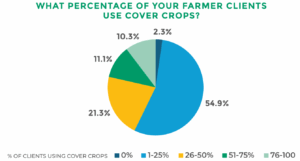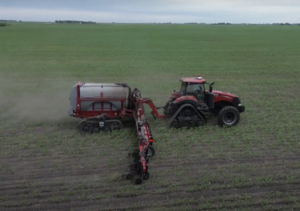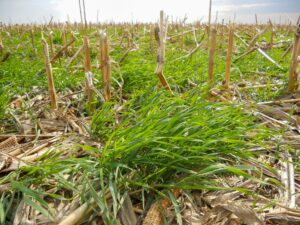By: 4R Plus
April 2019
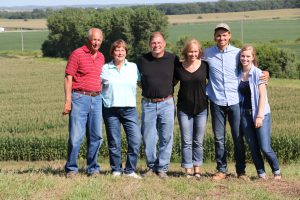
Muscatine County farmer Mark Heckman of Heckman Farms continues to investigate and add conservation and nutrient stewardship practices to the farm that make “dollars and sense.” Acknowledging the challenging economic environment farmers face as they head into the fields this spring, his focus is on adding 4R Plus practices that help his family’s business produce more with less.
“During good economic times we make improvements to our land and operation so when margins are tight, we can be more sustainable,” said Heckman, a third-generation farmer who runs the operation along with his parents and siblings. “This is a tough time right now for a lot of farmers and you’re forced to choose where to spend or not spend your farming investments.”
With that in mind, the Heckman family pushes the pencil to see what practices garner a return on their investment, and puts them through a litmus test to determine if they are sustainable. “For example, in this economic environment it may not make sense to add more nitrogen unless you know the crop needs it,” said Heckman.
Last fall the Heckman family made the decision to invest in soil sampling on two-and-a-half acre grids to determine the nutrient plan. “We’ve learned we can put a lot of growth on the crop early in the season with added nitrogen, but that doesn’t necessarily correlate to added kernel weight,” he said.
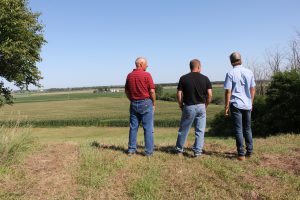
“We are more interested in placing the fertilizer where it’s needed, when it’s needed and at a prescribed rate to feed the kernel instead of the entire plant,” he said. “This might not be the most convenient plan, but it’s best for the crop, for the quality of the water and helps us get the most out of our investment.”
He remembers a time when the entire farm received a blanket of lime and they used a consistent seed population across the acres. “We now have a prescribed seed population rate based on our grid sampling and place nutrients at a prescribed rate that varies across the field,” he said.
On the varied landscape, the Heckman family uses a variety of conservation practices like no-till, planting on the contour and seeding as many acres as possible to cover crops. “No-till saves us trips up and down the field, so it saves time and has equipment and fuel costs savings as well,” he said. “We’ve also learned the longer we stick with this system, the more soil health benefits we see. We’re building organic matter in the soil by leaving it undisturbed.”
Heckman wishes he had this knowledge many years ago. “I’ve learned a lot about the practices we have on our farm from field days and my involvement with Iowa Corn and the Soil Health Partnership,” he said, noting the importance of sharing information with other farmers. “This has given me the confidence to do things differently.
“We don’t have the luxury this year of overstepping budgets,” Heckman continued. “That may come back, but in the current environment it drives home the importance of how all of our practices have to be cost effective. In years like this we’re reminded that 4R Plus practices go hand in hand with sustainable production of crops, which is important to our family. We want to be good stewards of the soil and implement the practices we can continue over the long term.”

